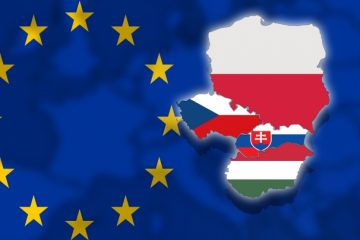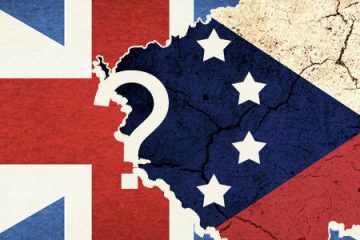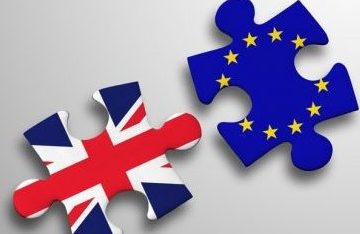
The Visegrad Group and Brexit: Ambitions Too High?
The Visegrád Group (VG; also referred to as the Visegrád Four) is a multilateral platform composed of four Central and Eastern European states (the Czech Republic, Hungary, Poland and Slovakia) which was established in 1991 to enhance mutual cooperation and coordination and which has recently become synonymous with the word “rebellion” in Brussels. Ambitions unleashed Many commentators and researchers have argued that Brexit would increase the potential for this sub-regional grouping to punch above its weight, better secure its interests and contribute more prominently to shaping the future of the EU. Indeed, the group itself has clearly tried to include Brexit in its portfolio of sub-regional cooperation. There has been a clearly articulated ambition within VG political circles to define …

The Captain at the Helm: The Rise of the League and the Imbalances of the Italian Government
Italy’s post-war political system is not new to dramatic government changes and sudden reversals of fortunes. The experience of the first populist experiment in government thus far is no exception. The elections of March 4th, 2018, were nothing short of a political earthquake. The most dramatic result was the success of the Five Star Movement (M5S). The political formation, created by comedian-turned-guru Beppe Grillo and led by his former lieutenant Luigi Di Maio, became the strongest party in Parliament with 32.7% of votes, wooing voters away from Matteo Renzi’s PD. On the right, the League took over Berlusconi’s Forza Italia as the main political party, winning over 17% of votes. This ‘sorpasso’ emboldened Salvini to break with the electoral pact …

Macron, the Yellow Vests and the Redemptive face of politics
On November 17th, 2018 large crowds began blockading roads around France dressed in the high-visibility yellow jackets that all French cars must store. Their initial demands focused on stopping a new fuel levy introduced to reduce carbon emissions and raise money for investments in renewables. However, this has not been the French government’s only problem: a recent survey has suggested the French are the most pessimistic people in Europe seeing little hope in the future either for themselves or the country, hate crime has risen dramatically, and, remnants of the Yellow Vests continue to organize violent demonstrations around the country. This toxic combination has left the government of Emmanuel Macron with little room to manoeuvre and, as his most recent …

The Kosovo Question in Romanian Politics
The Western Balkans have been a core theme in the political programs of subsequent presidencies of the Council of the European Union in the last years. Both the Austrian and Bulgarian presidencies highlighted the importance of the region and placed the topic on the agenda. A similar emphasis is supposedly followed by the Romanian Presidency that started on January, 1st, 2019. Yet, one key piece is missing from the Romanian agenda and its approach towards the presumable future enlargement in the Western Balkans: Kosovo. Neither the programme of the Presidency, nor national debates talk about Kosovo and its relationship with the European Union. Ignoring Kosovo does not mean that the issue is still not there. Romania remains one of the …

Czech Brexit Policy: Low Level of Politicization and High Degree of Compliance
There are at least four reasons why one might expect Brexit to be a high-profile, politicized issue in Czech politics. First of all, there is increasing evidence that the European Union (EU) crises, of which Brexit is currently probably the most acute one, have led to increased politicization of EU politics in many member states. Secondly, the Czech EU debate is generally politicized and characterized by a predominantly critical tone. Indeed, the country has long been one of the most Eurosceptic EU member states, with a strong tradition of party-based Euroscepticism and a low level of public trust in the EU (according to the latest Eurobarometer survey, it has the third lowest level of public trust in the EU after …

It’s not you, it’s us! What the Brexit divorce tells us about the EU’s own weaknesses
According to social media in Russia, “Brexit” has just assumed a new meaning: you say goodbye, but never leave. Vasilij Petrovich has drunk half a bottle of vodka, broken some precious porcelain, offended the hosts, and despite saying goodbye, he is still sitting at the table and drinking. You feel like pushing him out to the cold, but this would create more problems than keeping him in. This story reflects the current European dilemma. For many years, the United Kingdom enjoyed the benefits of European integration without trying to become a constructive, let alone affectionate, EU member. Two years ago, it decided to leave the EU, but is still pondering whether to leave through the door, window or chimney. The …

Our Day Will Come: The Inevitability of Irish Unification as Brexit Approaches
On June 23rd, 2016, the citizens of the UK voted to leave the European Union. This began an unprecedented process of dissociation, commonly known as Brexit. Among the many challenges that Brexit poses is how to handle the border between Britain and the Republic of Ireland. In the recent past, the “soft” border between the two nations has allowed for the free flow of people and goods. However, if Brexit negotiations fail, a “hard” border will replace the currently soft border between the Republic and Northern Ireland. This presents a problem because under present conditions the border allows for mutually beneficial economic and social exchange, as well as having been instrumental in guaranteeing the Northern Irish peace process. This border …

When are Green parties successful?
In 2018 Green parties are experiencing unprecedented levels of success in several advanced democracies; however, in a great many others they remain only minor footnotes to national electoral contests. Zack P. Grant argues that variation in Green party support is largely a function of good economic times, the presence of tangible environmental disputes, and mainstream parties actively attempting to emulate the positions of the Greens on their core issues (though the latter is dependent upon the age of Green parties themselves). Though it has attracted far less academic attention and media fuss than the ongoing ‘rise of the populist right’, several advanced democracies are currently undergoing a pronounced ‘Green surge’. After a somewhat disappointing 2017, in which they suffered parliamentary …









